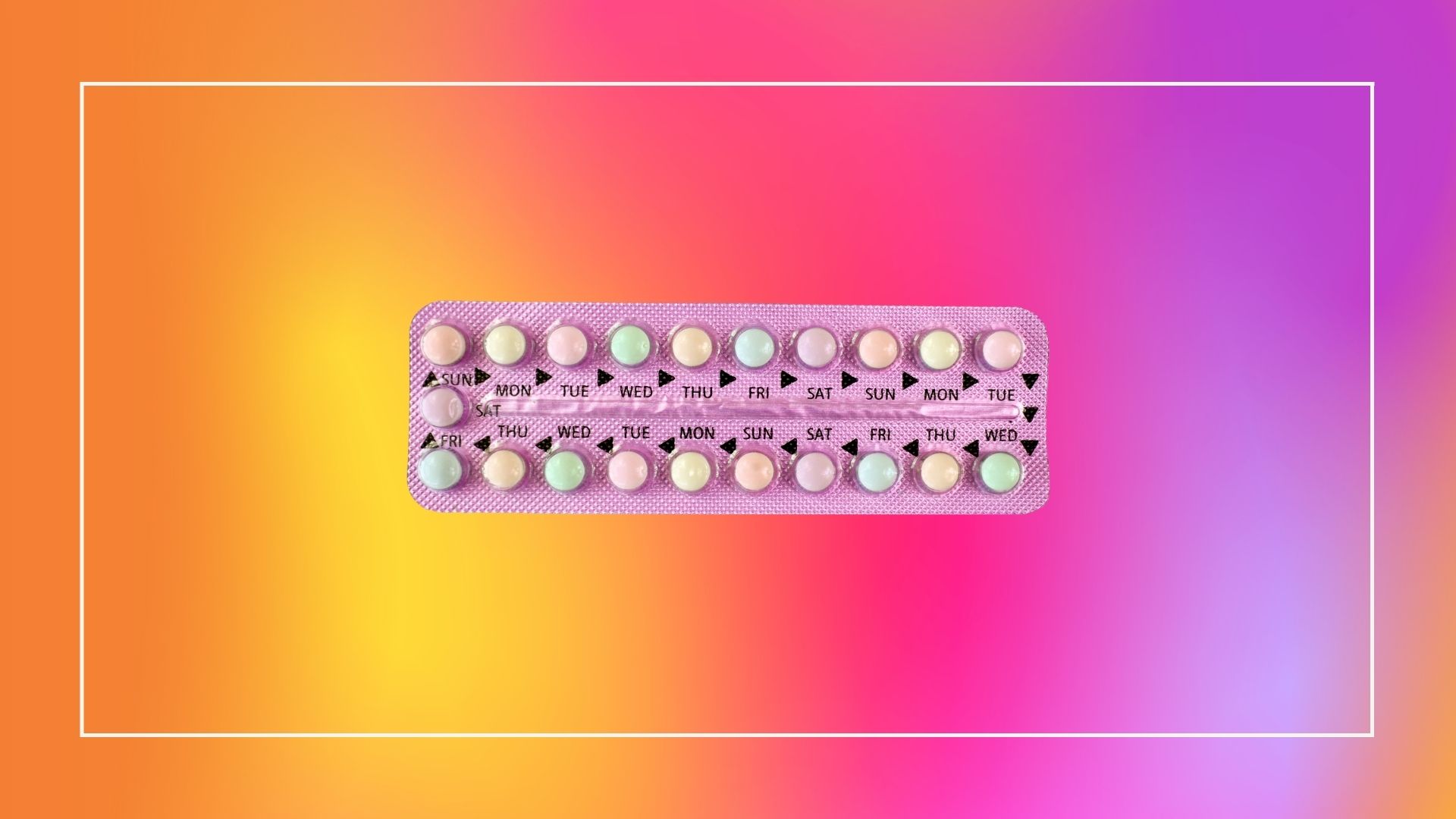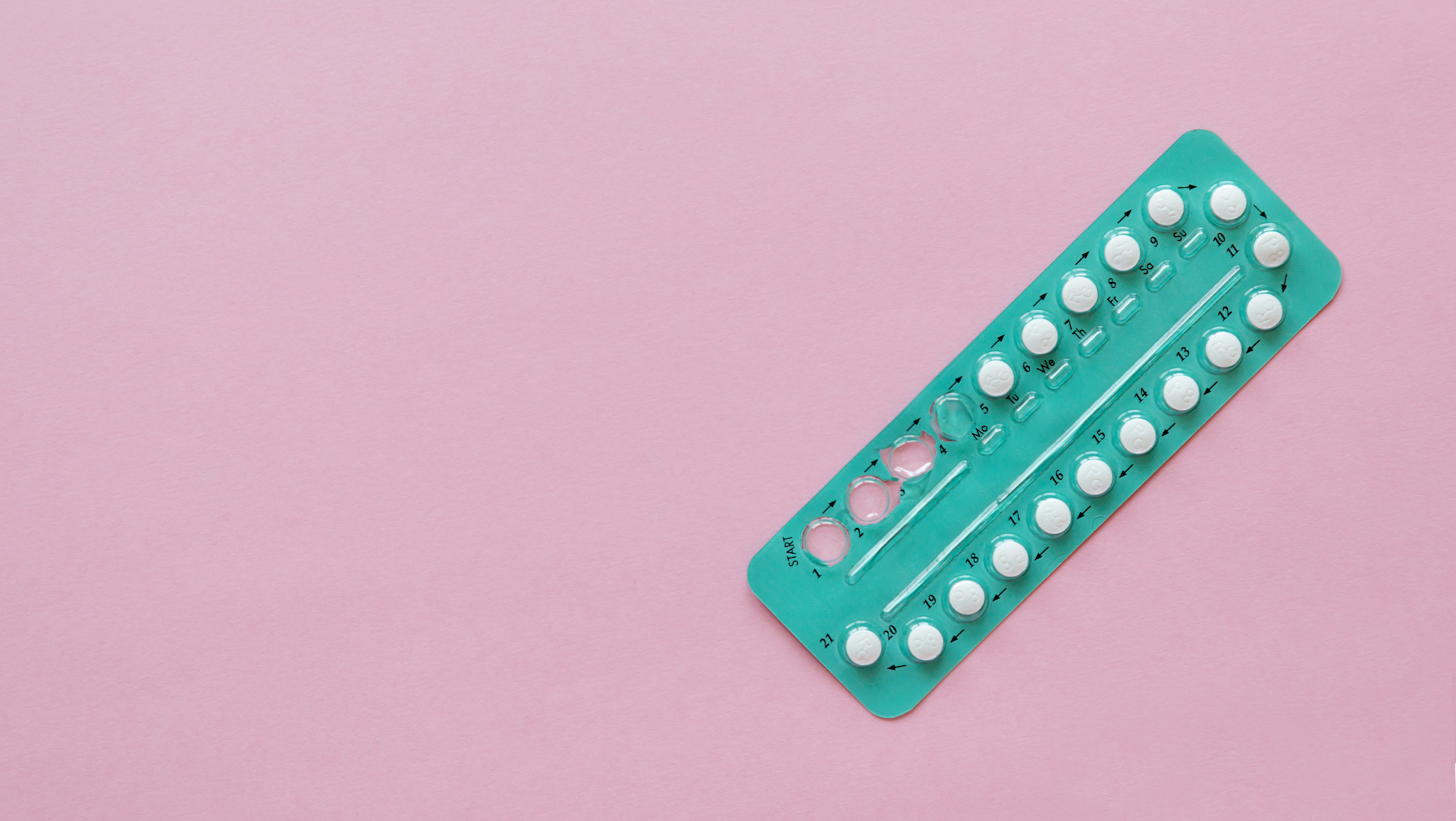What are the side effects of birth control? All the questions to ask your gyno before picking the plan for you
Want to try the pill? An IUD? What about the side effects of birth control? We've rounded up all of your questions and gotten responses from the pros


Before the pleasure comes the prep: researching all the side effects of birth control and selecting the right plan for you.
Whether you're focused on preventing pregnancy or looking for ways to cope with period pain, there's a birth control method that can cater to your needs. Though finding the perfect fit is a very personalized process, there are a few universal truths that all women should consider when speaking to their gynos.
"It's your body and your choice, nothing is final," says Yale Medicine's Samantha D. Baer, MD, who specializes in gynecology and obstetrics. "It's important to find a health team where you're comfortable and someone is listening to any concerns you have and speaking openly about both the benefits and the possible risks or side effects with any method."
If you're weighing your options, asking pertinent questions and attempting to find the proper birth control fit, here's what gynecologists want you to know.
All of the birth control questions to ask your OGYN
1. What birth control plan should I select?
There's no one-size-fits-all answer, and methods are subject to change. Before you approach a professional, think about what you want from the pills, IUDs, rings and so forth.
"When I'm talking to people about their birth control options, I usually start by asking what's important to them about their method," says Robin Watkins, CNM, WHNP-BC and Sr. Director, Health Care at Power To Decide. "How important is it that it's super effective at preventing pregnancy, are there side effects that might be unmanageable to them..."
Do be sure to consider the following points:
- Would you prefer hormonal or non-hormonal birth control?
- Will you remember to take a pill on a daily basis?
- Do you have medical conditions that might interfere with a plan?
- How soon will you require protection against pregnancy?
- Are you open to a backup birth control method?
- Do you have pregnancy plans for the immediate future?
- Do you have menstrual pains that you'd like to lessen?
- Do you have concerns about the privacy of the method?
2. Hormonal vs. non-hormonal: what's the difference?
Non-hormonal options do not interfere with your natural hormones when working to prevent pregnancy, according to Healthline. Some of these options include condoms, copper IUDs and diaphragms.
Hormonal pills—estrogen and progestin—"safely stop ovulation," per Planned Parenthood. "No ovulation means there’s no egg for sperm to fertilize, so pregnancy can’t happen."
Both Baer and Watkins note that both hormonal and non-hormonal methods are viable options, yet the effects can differ from patient to patient.
If you are comfortable taking a pill on a daily basis at roughly the same time, a hormonal pill could work well for you. If you're comfortable with having something injected into your body—freeing the need for a daily pill—perhaps an IUD would be more suitable.
Be sure to explore the pros and cons of each before coming to a decision with your doctor.

3. What are the side effects of birth control?
Like the plans themselves, birth control side effects differ for each individual depending on what they've selected. Those who select IUDs might encounter spotting or irregular periods, whereas those who take the pill can experience lighter periods.
Other possibilities include weight gain, breast tenderness and headaches, to name a few. In extreme cases, some women might experience strokes or heart-related complications, so it's always important to go over your medical history with a professional.
Like all medications, birth control does come with a few warnings, but you're not subjected to one method if it is not suitable for you.
"[Side effects] really vary from person to person," Baer notes. "Sometimes that can be controlled based on the dosage and the formulation. Other times it means we might have to look at other methods that don't have those same side effects."
4. When is birth control effective?
Playing along with the theme, birth control effectiveness differs for each type of method. According to Healthline, here's how soon you'll be protected depending on what you've selected:
- Combination pills: Effective right away if taken on the first day of your period, otherwise it takes a week to become effective
- Progesterone pills: effective 48 hours after they're taken
- Hormonal IUDs: effective immediately if inserted within the first seven days of your period, otherwise it takes a week to become effective
- Copper IUDs: effective immediately after insertion
5. How do I prevent STDs?
The pill will not protect you from sexually-transmitted diseases, but the CDC states that "correct and consistent use of the male latex condom is highly effective in reducing STD transmission."
Those with latex allergies can opt for synthetic non-latex condoms, but do be warned that they're more susceptible to breakage.
6. How do I pay for my birth control prescription?
Options like IUDs are more likely to amount to a one-time payment, but most insurances under the ACA cover the entire cost of birth control subscriptions. Other options like Medicare can also help with costs.
For those who have questions about costs, flexibility and access, Watkins encourages women to explore their local planning clinics.
7. Where can I go for help?
In addition to finding a suitable OBGYN, Baer and Watkins highly recommend a visit to Bedsider Birth Control.
The online resource will give you the lowdown on all different types of birth control, help you select and pay for a plan, compare methods, find local health centers and so much more.
Plus, there is a section devoted to masturbation tips, consent, sex tips and all other love and relationship-based questions and concerns.
The birth-control bottom line:
Find a medical expert who makes you feel comfortable when discussing personal matters, and always be candid about your health and expectations, as this could affect the method you're prescribed as well as its effectiveness.
Although it's a tricky world right now, and things are up in the air with women's reproductive rights following the SCOTUS Roe v. Wade leak, know that there are professionals committed to keeping women's health at the top of the priority list.
"We don't know where we're going to end up," Baer admits. "Know your resources, know what's available to you in your community, know where your clinics are located and talk to your doctors."
She continues: "This might be a long fight, it might be a hard fight but we are here. This is important healthcare that everyone deserves to have access to."
Robin Watkins, CNM, WHNP-BC, joined Power to Decide in 2018 and serves as the Senior Director, Health Care. Robin earned her Master of Science in Nursing, Midwifery, and Women's Health Nurse Practitioner degree from Georgetown University School of Nursing, and BS in both nursing and public health from Johns Hopkins University.
Dr. Samantha Baer specializes in gynecology and obstetrics. She earned her degree from the University of Florida College of Medicine did her residency at Tufts New England Medical Center.

Need a TV show recommendation? Maybe a few decor tips? Danielle, a digital news writer at Future, has you covered. Her work appears throughout the company’s lifestyle brands, including My Imperfect Life, Real Homes, and woman&home. Mainly, her time is spent at My Imperfect Life, where she’s attuned to the latest entertainment trends and dating advice for Gen Z.
Before her time at Future, Danielle was the editor of Time Out New York Kids, where she got to experience the best of the city from the point of view of its littlest residents. Before that, she was a news editor at Elite Daily. Her work has also appeared in Domino, Chowhound, and amNewYork, to name a few.
When Danielle’s not writing, you can find her testing out a new recipe, reading a book (suggestions always welcome), or rearranging the furniture in her apartment…again.